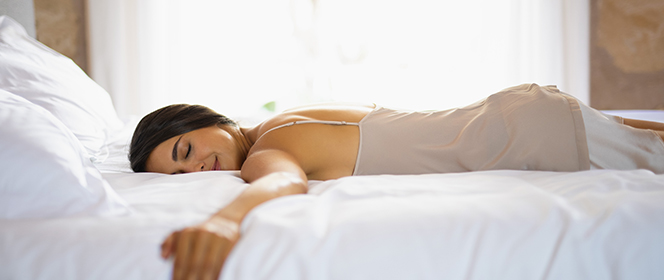Who we work with
TEMPUR® continues to support the Mental Health Foundation
TEMPUR®is a proud supporter of the Mental Health Foundation. Over the past few years we have fundraised and donated over £10,000 to their cause.
Did you know?
We spend about a third of our lives asleep. A good night’s sleep is essential - It is as important to our bodies as eating, drinking and breathing, and is vital for maintaining good mental and physical health. Sleeping helps us to recover from mental as well as physical exertion. Sleep and health are strongly related - poor sleep can increase the risk of having poor health, and poor health can make it harder to sleep.
Sleep disturbances can be one of the first signs of stress. Common mental health problems like anxiety and depression often underpin sleep problems. It is worth remembering that treating sleep problems alongside mental health problems can help address both symptoms and causes, leading to quicker recovery.
We can all benefit from improving the quality of our sleep. For many of us, it may simply be a case of making small lifestyle or attitude adjustments to help us sleep better.
Up to one third of the population may suffer from insomnia (lack of or poor-quality sleep). This can affect mood, energy and concentration levels, our relationships, and our ability to stay awake and function at work during the day.

Top tips for getting a better night’s sleep
Health - If you’ve got ongoing health problems, or you are worried about your health, your sleep can be affected. Make sure you speak to your GP – don’t just put up with it.
Environment - Where you sleep is important, the bedroom should be designed with sleep in mind. Temperature, noise levels and light all play a part in determining our sleep quality, as does the bed. If you find yourself disturbed, try keeping a sleep diary to see if there are patterns which can help identify a problem.
Attitude - It’s easier to get to sleep when we can relax, and let go of our worries. We’ve all had a night where we lie awake and fret. In the time before we go to bed, we should try and wind down, be less stimulated, and relax. These days this is harder than ever, but relaxation techniques, a warm bath or mindfulness practice can all help. If you find you can’t get to sleep, it is always best to get up, perhaps make a warm milky drink, and then try again when you feel sleepier. It can be tempting to turn on the TV or check your social media but this may stimulate you and make it harder to nod off.
Lifestyle - What you eat and drink can affect your sleep. Stimulants like caffeine can make it harder to sleep, and a heavy or sugary meal close to bedtime can make sleep uncomfortable. Alcohol might seem to help you get to sleep, but it reduces the quality of sleep later. Taking exercise during the day is also a good way to aid sleep, but exercise releases adrenaline so exercise in the evening may be less helpful. Watching TV, spending time on your phone or computer, or eating in bed can all affect the quality of our sleep.
TEMPUR® is proud to be supporting the Mental Health Foundation this year.

The Mental Health Foundation is a registered charity, with registered numbers 801130 (in England) and 039714 (in Scotland).

